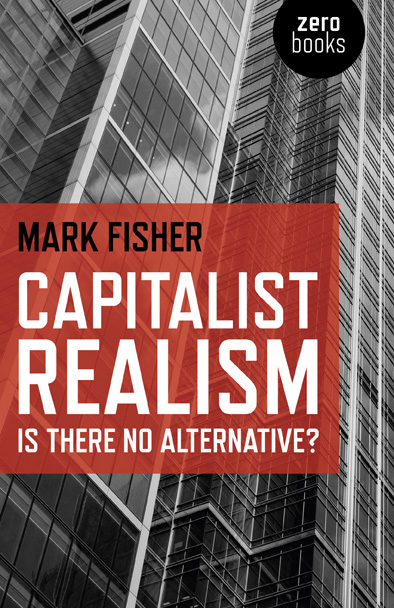Dmytri Kleiner: The Telekommunist Manifesto (2010)
Filed under book | Tags: · capitalism, commons, copyright, cultural production, intellectual property, labour, manifesto, p2p, political economy, venture communism

“In the age of international telecommunications, global migration and the emergence of the information economy, how can class conflict and property be understood? Drawing from political economy and concepts related to intellectual property, The Telekommunist Manifesto is a key contribution to commons-based, collaborative and shared forms of cultural production and economic distribution.
Proposing ‘venture communism’ as a new model for workers’ self-organization, Kleiner spins Marx and Engels’ seminal Manifesto of the Communist Party into the age of the internet. As a peer-to-peer model, venture communism allocates capital that is critically needed to accomplish what capitalism cannot: the ongoing proliferation of free culture and free networks.
In developing the concept of venture communism, Kleiner provides a critique of copyright regimes, and current liberal views of free software and free culture which seek to trap culture within capitalism. Kleiner proposes copyfarleft, and provides a usable model of a Peer Production License.
Encouraging hackers and artists to embrace the revolutionary potential of the internet for a truly free society, The Telekommunist Manifesto is a political-conceptual call to arms in the fight against capitalism.”
The Telekommunist Manifesto is composed of texts that have been extended and reworked by Dmytri Kleiner, from texts by Joanne Richardson, Brian Wyrick and Dmytri Kleiner, 2004–2008.
Publisher Institute of Network Cultures, Amsterdam, October 2010
Network Notebooks series, 3
Peer Production License. Commercial use encouraged for Independent and Collective/Commons-based users.
ISBN 9789081602129
PDF, PDF (updated on 2022-11-12)
Comment (0)Mark Fisher: Capitalist Realism: Is There No Alternative? (2009–) [EN, CZ, CR, GR, ES, IT]
Filed under book | Tags: · capitalism, ideology, left, political philosophy, politics, realism

“After 1989, capitalism has successfully presented itself as the only realistic political-economic system – a situation that the bank crisis of 2008, far from ending, actually compounded. The book analyses the development and principal features of this capitalist realism as a lived ideological framework. Using examples from politics, films, fiction, work and education, it argues that capitalist realism colours all areas of contemporary experience. But it will also show that, because of a number of inconsistencies and glitches internal to the capitalist reality program capitalism in fact is anything but realistic.”
Publisher Zero Books, Winchester, 2009
ISBN 1846943175, 9781846943171
81 pages
Interview with author: Matthew Fuller (Monthly Review, 2009).
Reviews: Steven Sherman (Marx&Philosophy, 2010), Ben Granger (Spike, 2010), John F. Murphy (Critical Sociology, 2010), Ed Rooksby (Historical Materialism, 2012), Todd Hoffman (Ctheory, 2016), Matěj Metelec (A2, 2010, CZ), Roman Rakowski (Britské listy, 2010, CZ).
Commentary: Mark Fisher (Strike!, 2012), Alison Shonkwiler, Leigh Claire La Berge et al. (Reading Capitalist Realism, 2014), Alfie Bown (LSE blog, 2017).
Capitalist Realism: Is There No Alternative? (English, 2009, updated on 2017-7-12)
Kapitalistický realismus: proč je dnes snazší představit si konec světa než konec kapitalismu (Czech, trans. Radovan Baroš, 2010, 29 MB, added on 2020-4-7)
Kapitalistički realizam: Zar nema alternative? (Croatian, 2011, 4 MB, added on 2013-9-26, updated on 2020-4-7)
Καπιταλιστικός ρεαλισμός. Υπάρχει άραγε εναλλακτική; (Greek, trans. Θέμης Πανταζάκος, 2015, added on 2017-7-12, updated on 2020-4-7)
Realismo Capitalista. ¿No hay alternativa? (Spanish, trans. Claudio Iglesias, 2016, 7 MB, added on 2021-1-22)
Realismo capitalismo (Italian, trans. Valerio Mattioli, 2018, added on 2020-4-7)
SubStance journal 112: Italian Post-Workerist Thought (2007)
Filed under journal | Tags: · capitalism, economy, labour, marxism, philosophy, politics, precariat

SubStance is an interdisciplinary journal for discourses converging upon literature from a variety of fields, including philosophy, the social science, science, and the arts.
Issue 112 (Volume 36, Number 1), 2007
Special Issue: Italian Post-Workerist Thought
Edited by: Max Henninger, Giuseppina Mecchia, and Timothy S. Murphy

